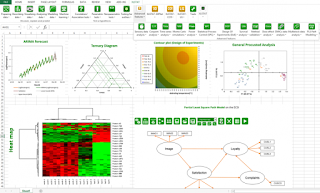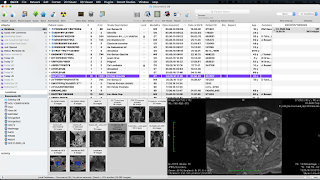XLSTAT Premium 2019.1.3 Full Version Download (crack keygen)
XLSTAT Premium 2019.1.3 Full Version Download (crack keygen)
XLSTAT-Premium is an advanced yet affordably priced statistical solution that includes all of the 200+ XLSTAT features currently available. In XLSTAT-Premium we have included it all so you’ll have access to any method, any time.Prepare data, visualize, explore, analyze, take decisions, predict. Take advantage of all of what data analysis tools offer today in one powerful yet user-friendly software that will reveal everything your data has to say in just a few clicks.
Preference Mapping allows to build maps which are useful in a variety of domains. A preference map is a decision support tool in analyses where a configuration of objects has been obtained from a first analysis (PCA, MCA, MDS), and where a table with complementary data describing the objects is available (attributes or preference data).
There are two types of preference mapping methods:
External preference mapping or PREFMAP, which is detailled here.
Internal preference mapping
Penalty analysis is a method used in sensory data analysis to identify potential directions for the improvement of products, on the basis of surveys performed on consumers or experts.
Two types of data are used:
Preference data (or liking scores) that correspond to a global satisfaction index for a product (for example, liking scores on a 9 point scale for a chocolate bar), or for a characteristic of a product (for example, the comfort of a car rated from 1 to 10).
Data collected on a JAR (Just About Right) scale. These correspond to ratings ranging from 1 to 6 for one or more characteristics of the product of interest. 1 corresponds not « Not enough at all », 2 to « Not enough », 3 to « JAR » (Just About Right), an ideal for the consumer, 4 to « Too much » and 5 to « Far too much ». For example, for a chocolate bar, one can rate the bitterness, and for the comfort of the car, the sound volume of the engine.
The method, based on multiple comparisons such as those used in ANOVA, consists in identifying, for each characteristic studied on the JAR scale, if the rankings on the JAR scale are related to significantly different results in the liking scores.
For example, if a chocolate is too bitter, does that significantly impact the liking scores?
The word penalty comes from the fact that we are looking for the characteristics which can penalize the consumer satisfaction for a given product. The penalty is the difference between the mean of the liking scores for the JAR category, and the mean of the scores for the other categories.
CATA (check-all-that-apply) surveys have become more and more popular for sensory product characterization since 2007, when it was presented by Adams et al. CATA surveys allow to focus on consumers, more representative of the market, instead of trained assessors. They are easy to set up and easy for participants to answer. The principle is that each assessor receives a questionnaire with attributes or descriptors that the respondent may feel, or not, that they apply to one or more products. If it does, he/she simply needs to check the attribute, otherwise he does not need to do anything. Other questions on different scales may be added to relate the attributes to preferences and liking scores. If participants are asked to give an overall rating to each product of the study, then further analyses and preference modelling is possible. Ares et al. (2014), recommend that the order of the CATA questions is randomized for each assessor to improve the reproducibility
DOWNLOAD LINK




Nhận xét
Đăng nhận xét